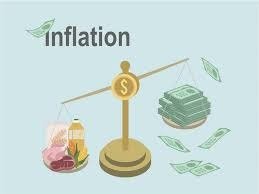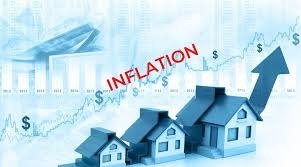
Inflation, the general rise in prices and the decrease in the purchasing value of money, has a profound impact on various sectors of the economy, and the real estate market is no exception. As inflation rates continue to surge globally, the real estate market is feeling the effects in multiple ways, from increased property prices to changes in investment strategies.
Rising Property Prices
One of the most immediate effects of inflation on real estate is the increase in property prices. As the cost of materials, labor, and land rise, developers pass these costs onto consumers, leading to higher prices for both residential and commercial properties. This trend is evident across the globe, with major cities like New York, London, and Sydney experiencing significant hikes in property values over the past year.
For instance, in the United States, home prices have surged dramatically in recent years, driven not only by inflation but also by a shortage of supply and high demand. According to data from the National Association of Realtors, the median home price in the U.S. reached a record high in 2023, with some areas seeing increases of over 20% year-over-year .

Impact on Mortgage Rates
Inflation also affects mortgage rates, which are closely tied to interest rates set by central banks. As inflation rises, central banks often increase interest rates to curb spending and reduce inflationary pressure. Higher interest rates make borrowing more expensive, leading to higher mortgage rates for homebuyers. This can decrease affordability for potential buyers, reducing demand and potentially cooling off overheated housing markets.
In countries like Canada and the UK, where inflation rates have been particularly high, central banks have raised interest rates multiple times over the past year. This has led to a slowdown in the housing market, as potential buyers are either priced out or choose to wait for more favorable conditions.
Shifts in Investor Behavior
Inflation also influences investor behavior in the real estate market. During periods of high inflation, real estate is often seen as a hedge against inflation because property values and rents tend to rise along with inflation. This makes real estate an attractive option for investors looking to preserve their capital and generate income.
However, the impact of inflation on real estate investment can vary depending on the type of property and the location. For example, luxury properties in prime locations may continue to appreciate, while more modest properties in less desirable areas might not see the same level of growth. Additionally, the commercial real estate sector, particularly retail and office spaces, has been more vulnerable to the negative effects of inflation due to changes in consumer behavior and the rise of remote work.
Construction and Development Challenges
The construction industry, which is vital to the real estate market, has also been hit hard by inflation. The cost of building materials like lumber, steel, and concrete has skyrocketed due to supply chain disruptions and increased demand. Labor costs have also risen as workers demand higher wages to keep up with the rising cost of living. These factors have led to delays and cost overruns in construction projects, further contributing to the increase in property prices.
In emerging markets, where real estate development is often driven by foreign investment, inflation has created additional challenges. Currency depreciation and rising costs have made it more expensive to fund new projects, leading to a slowdown in development and potentially stalling economic growth.
Regional Variations
The impact of inflation on real estate is not uniform across the globe. In some regions, such as the Asia-Pacific, property markets have remained relatively resilient despite inflationary pressures. This is partly due to strong economic growth and robust demand for housing. In contrast, in parts of Europe and Latin America, where inflation rates have been higher, the real estate market has experienced more significant disruptions.
For example, in Argentina, where inflation has been persistently high, the real estate market has struggled with declining property values and a lack of foreign investment. In contrast, in countries like Australia and New Zealand, property markets have continued to thrive, driven by strong demand and limited supply.
Inflation is having a profound impact on the global real estate market, affecting everything from property prices and mortgage rates to investor behavior and construction costs. While real estate remains an attractive investment during periods of inflation, the challenges it presents cannot be overlooked. As inflationary pressures continue, it will be crucial for investors, developers, and policymakers to adapt to the changing economic landscape and find ways to navigate the complexities of the real estate market in an inflationary environment .








